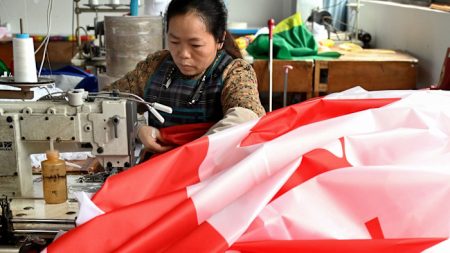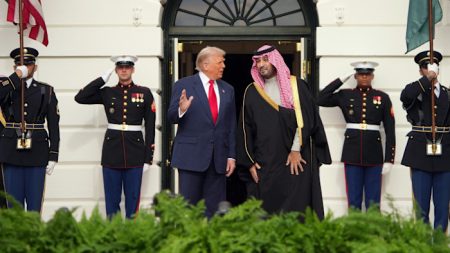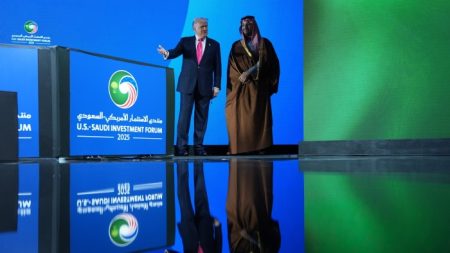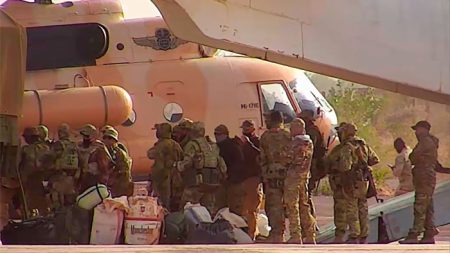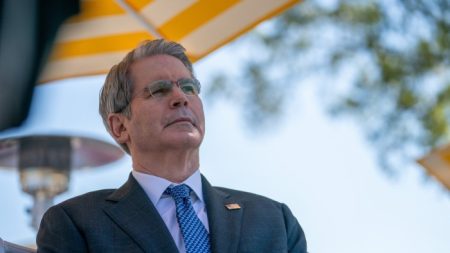Unlock the Editor’s Digest for free
Roula Khalaf, Editor of the FT, selects her favourite stories in this weekly newsletter.
The victory in Taiwan’s presidential election of Lai Ching-te — a man Beijing has described as a dangerous separatist — gives the ruling Democratic Progressive party (DPP) an unprecedented third term in office. On the eve of the polls, China’s People’s Liberation Army warned that it remained “on high alert to smash ‘Taiwan independence’ separatist plots in any form”. But Lai’s win broadly represents an endorsement for continuity from Tsai Ing-wen, who has held office since 2016.
In their initial statements after the elections, both Beijing and Lai sounded a relatively conciliatory tone. China’s Taiwan Affairs Office said it would “work with relevant political parties, groups and people from all walks of life in Taiwan to promote cross-strait exchanges and co-operation”. Lai, for his part, appealed to Beijing to find ways to reduce tensions. In a news conference, he recognised an “important responsibility to maintain peace and stability” with China.
Such moderation is welcome. The tensions across the Taiwan Strait, the 180km body of water that separates the island from China, make this one of the world’s most dangerous flashpoints. Beijing claims Taiwan as part of its territory and threatens to attack it if Taipei resists unification indefinitely. The DPP refuses to define Taiwan as part of China.
Yet in spite of the responsible initial rhetoric, the inflammatory nature of regional geopolitics remains unchanged. Beijing’s restraint, as well as the fortitude and balance of Lai’s administration, are set to encounter multiple and persistent tests. Both sides, as well as governments in the west, should clearly recognise the “red lines” in cross-straits relations and avoid crossing them in word or deed.
An early such test was the expected arrival in Taipei late on Sunday of a high-level US delegation of former officials due to “convey congratulations from the American people”.
Although China objects to any official contact between the US and Taiwan governments, the artful construction of this delegation reveals sensitivity on Washington’s part. In choosing former rather than serving officials, the US is maintaining an aura of unofficial ties with Taiwan. The US visit also has ample precedent. Similar delegations were dispatched by the US governments to Taipei in 2000, 2008 and 2016 after polls in which Taiwan elected a new president.
China, however, should realise that its repeated and longstanding threats towards Taiwan, often issued in blood-curdling language, have been counterproductive to its own objectives and to preserving peace in the Asia-Pacific region. Although Lai received only 40 per cent of the vote and the DPP lost control of the legislature, the result still represented a message of defiance by Taiwan voters towards Beijing’s pre-election threats.
It is now incumbent on all parties to focus not only on how to preserve peace across the Taiwan Strait but also on how to reduce tensions.
Beijing should refrain from conducting threatening military manoeuvres around Taiwan and tone down its threats of military action. Lai and other Taiwan officials should maintain the rhetorical discipline shown by Tsai during her presidency and seek to foster at least people-to-people exchanges with mainland Chinese counterparts. The US should carefully calibrate its official communications on Taiwan, taking care not to goad Beijing unnecessarily.
The current geopolitical balance around Taiwan is both incendiary and fragile. But it remains immeasurably preferable to the alternative: the eruption of conflict across the straits that could escalate into superpower war.
Read the full article here





